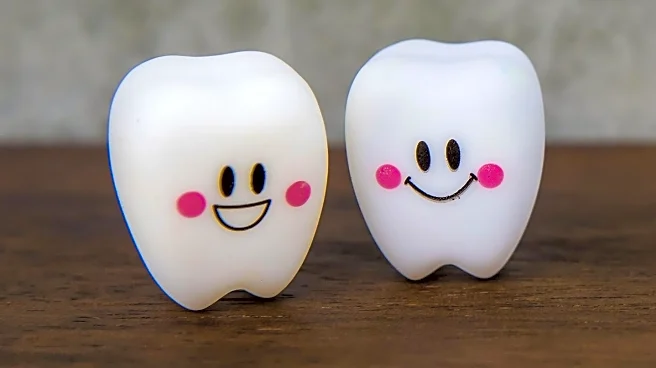What is the story about?
What's Happening?
Japanese scientists are progressing with human trials for a tooth-regrowing drug, aiming to address toothlessness by 2030. The experimental drug targets the USAG-1 antibody, which inhibits tooth growth. Initial trials involve 30 participants, focusing on safety and effectiveness. If successful, the treatment could be available for congenital tooth deficiency and general tooth loss. This breakthrough follows years of research on tooth growth mechanisms, offering hope for millions affected by edentulism. The trials represent a significant step in dental medicine, potentially transforming oral health care.
Why It's Important?
The development of a tooth-regrowing drug could revolutionize dental care, providing a permanent solution for tooth loss. This advancement addresses a major health issue, potentially reducing the need for dentures and implants. The research highlights the innovative use of monoclonal antibodies in regenerative medicine, showcasing the potential of biotechnology in solving complex health problems. Successful trials could lead to widespread adoption, impacting dental practices and patient outcomes globally. The initiative reflects the growing importance of personalized medicine and regenerative therapies in healthcare.
What's Next?
Following the initial trials, researchers plan to extend the treatment to younger patients with congenital tooth deficiencies. The focus will be on refining the drug's application and ensuring long-term safety. If successful, the drug could be commercialized by 2030, offering a new standard in dental care. Stakeholders, including healthcare providers and pharmaceutical companies, will likely explore partnerships to advance the technology. The trials may prompt further research into regenerative medicine, influencing future healthcare innovations and policy decisions.
















